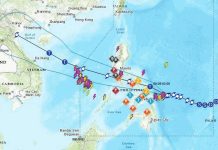BY GEROME DALIPE IV
ILOILO City – The online world has been buzzing after screenshots of text or chat messages allegedly between celebrities Maris Racal and Anthony Jennings were leaked, sparking debates about the legality of posting and sharing private conversations.
In a scenario reminiscent of the popular sentiment “hell hath no fury like a woman scorned,” Jennings’ former girlfriend, Jamela Villanueva, took to Instagram Stories, claiming that Jennings and Racal had a three-month relationship while she and Jennings were still together.
However, the act of leaking private conversations raises a critical legal question: Did Villanueva violate the right to privacy of the celebrities when she posted screenshots of their private conversation online?
The National Privacy Commission (NPC) has clarified that the Data Privacy Act (DPA) applies to screenshots if they reveal the identities of the individuals involved.
In its 2020 advisory, the NPC emphasized that the processing (or sharing) of personal data — such as sending out a screenshot to another person — comes under the scope of the DPA when personal data is involved.
According to the NPC, personal data refers to any information that can identify an individual, such as names, phone numbers, or any identifiable details.
Thus, sharing screenshots of private conversations that contain such personal data without consent can have serious legal consequences.
In addition, posting screenshots of private conversations without consent — especially if those conversations contain personal information — could be considered a violation of the Data Privacy Act. Violating this law can result in penalties more severe than those for cyberlibel.
The act is designed to protect personal data and safeguard individuals’ privacy rights, which includes protecting data from unauthorized sharing or public dissemination.
Therefore, even if the content relates to an alleged affair, if identifiable information is shared, the DPA could apply.
While the Supreme Court has recently ruled that screenshots can be admissible in a criminal case and do not necessarily violate an individual’s right to privacy, there are important caveats.
The latest ruling in the case of Eul Vincent O. Rodriguez clarified that such screenshots, when used as evidence in a criminal case, do not violate the right to privacy, especially if they are relevant to determining criminal liability.
However, this only applies within the specific context of criminal proceedings.
The use of screenshots outside this context, such as in online postings or personal disputes, could still violate the Data Privacy Act or other privacy laws if the screenshots contain identifiable personal data.
The Supreme Court ruled that recorded chat logs, videos, photographs, and conversations from messaging apps, like Facebook Messenger or Skype, may be used in a criminal case, as long as they are relevant to the case and do not violate privacy laws in that context.
Hence, the admissibility of screenshots as evidence is contingent on the context of criminal proceedings and is not a blanket permission to share personal conversations freely.
When shared in a non-criminal context, such on social media or in personal vendettas, sharing screenshots with identifiable information can lead to violations of privacy laws like the Data Privacy Act, even if the content is related to personal matters such as infidelity.
Even if someone is the victim of betrayal, the law reminds them that they must consider the legal ramifications of sharing private conversations online.
Given the fact that even cheaters have rights to privacy, existing law punishes those who leak private conversations with identifiable data for violating these rights./PN





